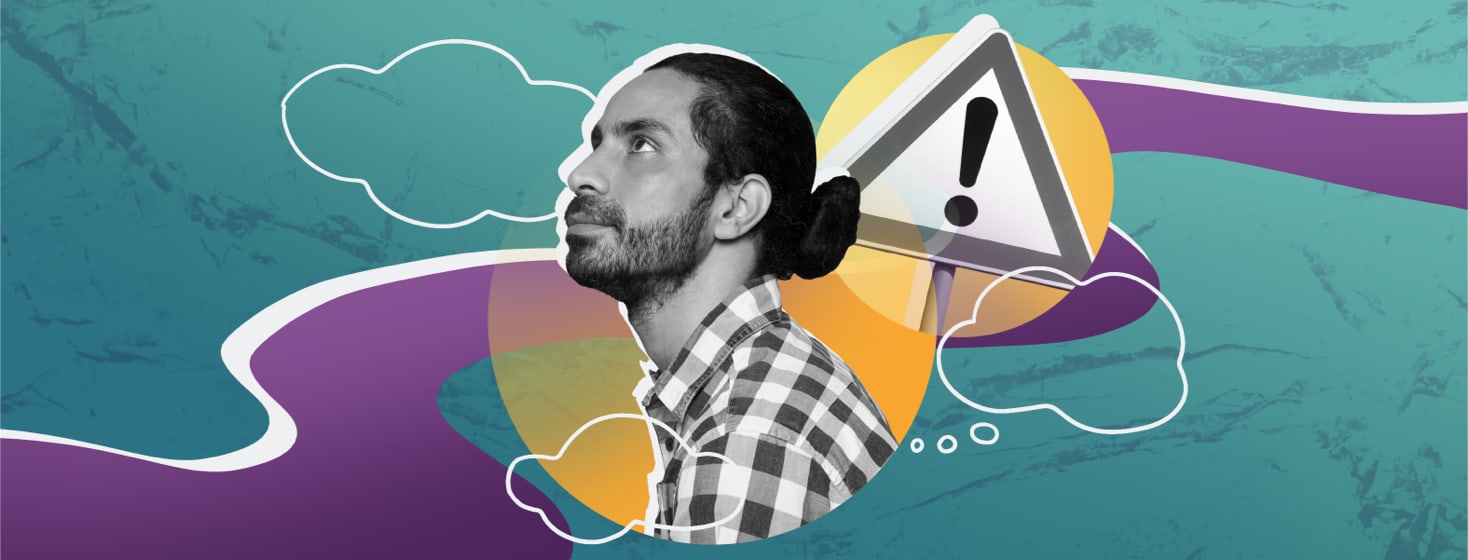Getting Used for Clickbait: My Biggest Advocacy Interview Mistake
I used to think that all advocacy was good advocacy. I would jump on any opportunity that came my way to collaborate with an organization, providing I had the spoons for it. I figured the more organizations I worked with, the bigger the outreach and the more awareness I could raise in different pockets of the world.
However, I recently had an experience that taught me this was is not always the case.
My "Daily Mail" dilemma
When I received a phone call from an arthritis charity that I often collaborate with asking if I’d like to be interviewed by the Daily Mail, I was hesitant at first. I didn't have a great deal of respect for the organization based on how I had seen them cover vulnerable groups in society previously.
However, I was told that the piece was on health issues that are often associated with being elderly and that it was going to showcase young people living with chronic illness. This sounded like a great way of challenging misconceptions about arthritis being a condition only for pensioners. As they have a big reach worldwide, I figured that it would be a good way to raise awareness on a large scale.
So, in the end I agreed to be interviewed for it. I figured that even though I probably held different values to their audience for the most part, it couldn’t do much harm in spreading some awareness. Boy I was wrong!
Delayed disappointment
Annoyingly, the King of England's coronation coincided with the day that the article was scheduled to be published. Apparently that was a bigger news story than mine, so the article was shelved.
A couple of years passed and I had forgotten I was ever interviewed for it. Then out of the blue I received a phone call from the journalist telling me that the story had been dug out it's grace and was finally going live the following day.
Most people from my part of South London don't make the headlines for anything positive, so I was very excited to see my face in the paper for something good! But this excitement was incredibly short lived. Before I could head down to the newsagents to pick up a copy, I saw the article posted on their website.
Betrayal behind a paywall
Well, actually that is not completely true. The article was behind a paywall so I only saw the headline which read "Why Old People's Illnesses are Soaring in Youngsters." They had done the opposite of what they had promised. It was meant to be breaking stereotypes of these conditions only affecting young people, but the headline straight away referred to these conditions as "old people’s illnesses."
What is even worse is that only people who subscribe would ever have got to read any more than this. But to be honest, if anyone did read on, they would not have been blessed with any accurate or helpful information. All they would have seen were implications that obesity and poor sleep could potentially be reasons why ‘old age diseases are on the rise among young people’.
The comment section was absolutely horrendous. Full of uneducated people blaming the chronically ill for having these conditions. Some of the outrageous reasons included; bad parenting, poor diets, being lazy and even working class people reproducing!
I was disgusted but, in all honesty, not too surprised given the reputation of the newspaper. My hopes of raising awareness were a failure and instead I was used for a clickbait article that spewed nothing but misinformation and hate speech. The stereotype was reinforced rather than disproved.
In future I shall be very careful choosing who to collaborate with.
Tips on avoiding an advocacy collaboration nightmare
Do some research
Read up on some of the journalist’s or organisation’s previous work and see how they have covered similar topics in the past. See whether your advocacy goals and values align with what the organisation stand for.
Check things beforehand
Ask to see the final copy of any publication before it goes live. Make sure that is agreed upon in any kind of consent form that you are signing for them. This way you can pull the plug on things if you don’t like how things are looking.
Trust your gut
I know that us chronically ill folk are used to being tricked by our bodies. But if it doesn’t feel right for you, trust your gut and only collaborate with organisations that you feel comfortable working with and won’t misconstrue your message.
Have you had any bad experiences collaborating with organizations or during interviews during your advocacy journey? Let me know in the comments below.

Join the conversation